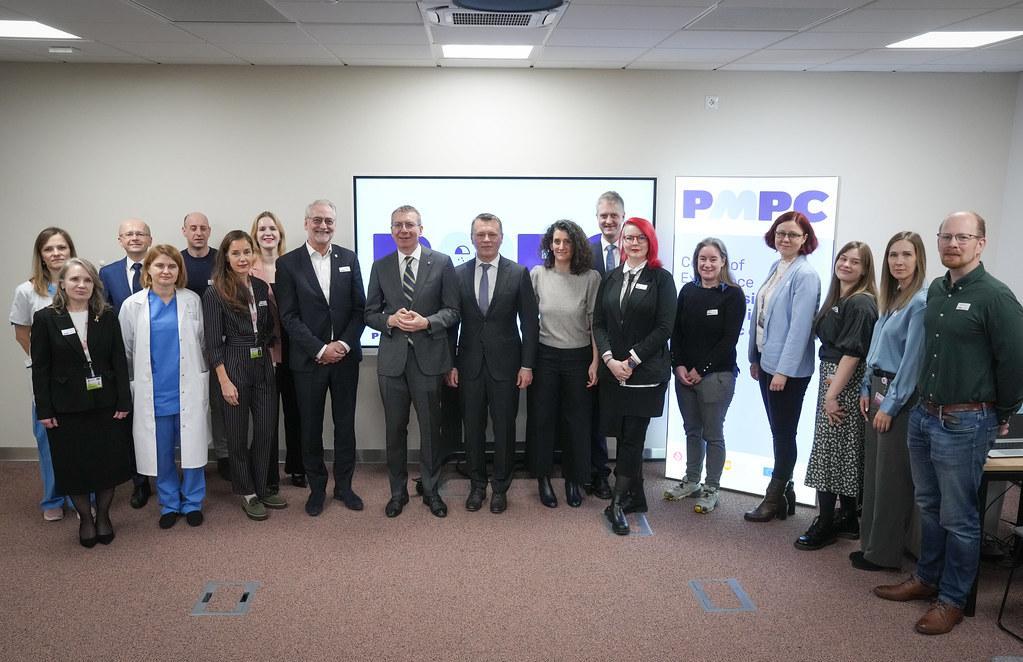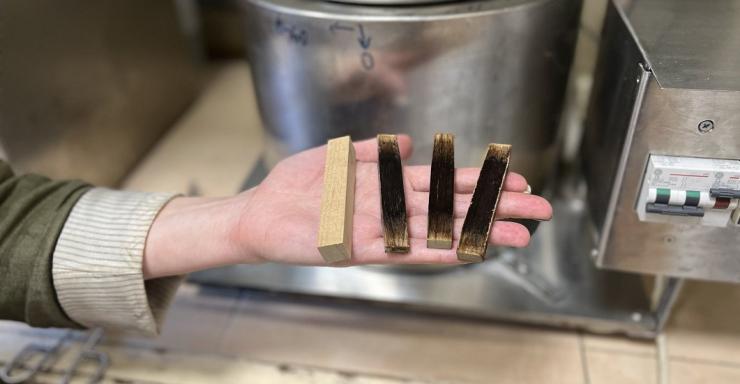On January 29, 2025, the Children's Clinical University Hospital celebrated the grand opening of the Center of Excellence in Research – the Precision Medicine Center for Pediatrics (PMPC). This marks a significant step forward for healthcare in Latvia, aiming to enhance the diagnosis and targeted treatment of pediatric diseases, ultimately improving healthcare quality and patient outcomes.
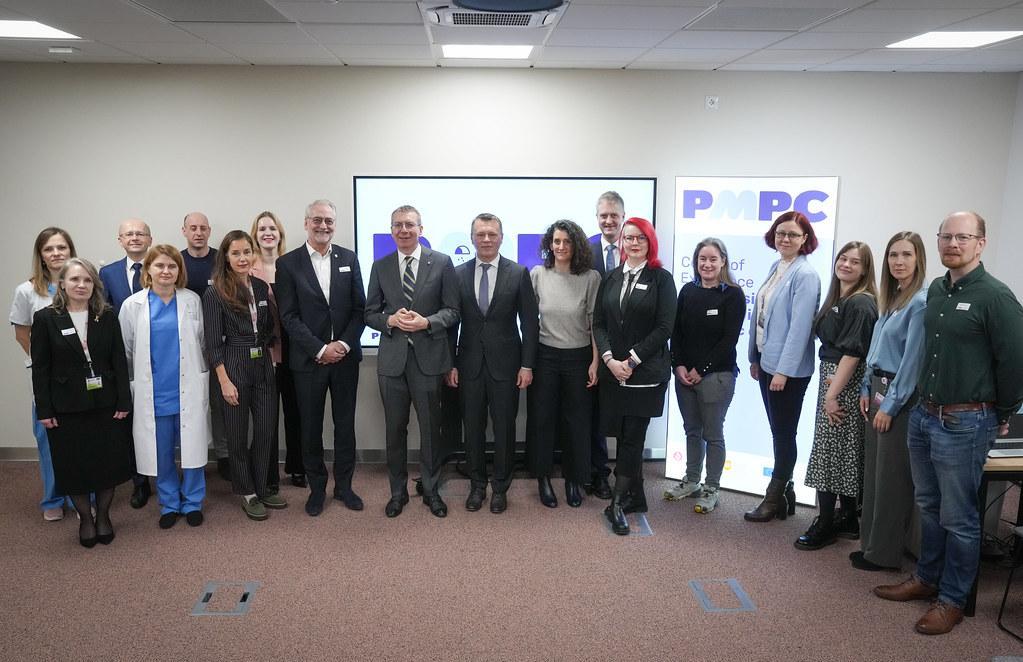
The center will feature cutting-edge research infrastructure, including a clinical research unit, a genomics and data analysis division, and resources dedicated to understanding the genetic basis of rare pediatric diseases, including oncological conditions. It will also promote the development and implementation of new therapies, focusing on rapid molecular diagnostics and cell immunotherapies, such as CAR-T therapy.
For the first six years, the PMPC will be funded with €14.4 million from the Horizon Europe WIDERA sub-program, with additional collaboration from the Prinses Máxima Centrum in the Netherlands—the largest pediatric oncology center in Europe.
Latvian President Edgars Rinkēvičs honored the opening ceremony with his visit, emphasizing the PMPC's role in advancing both national healthcare and scientific research.
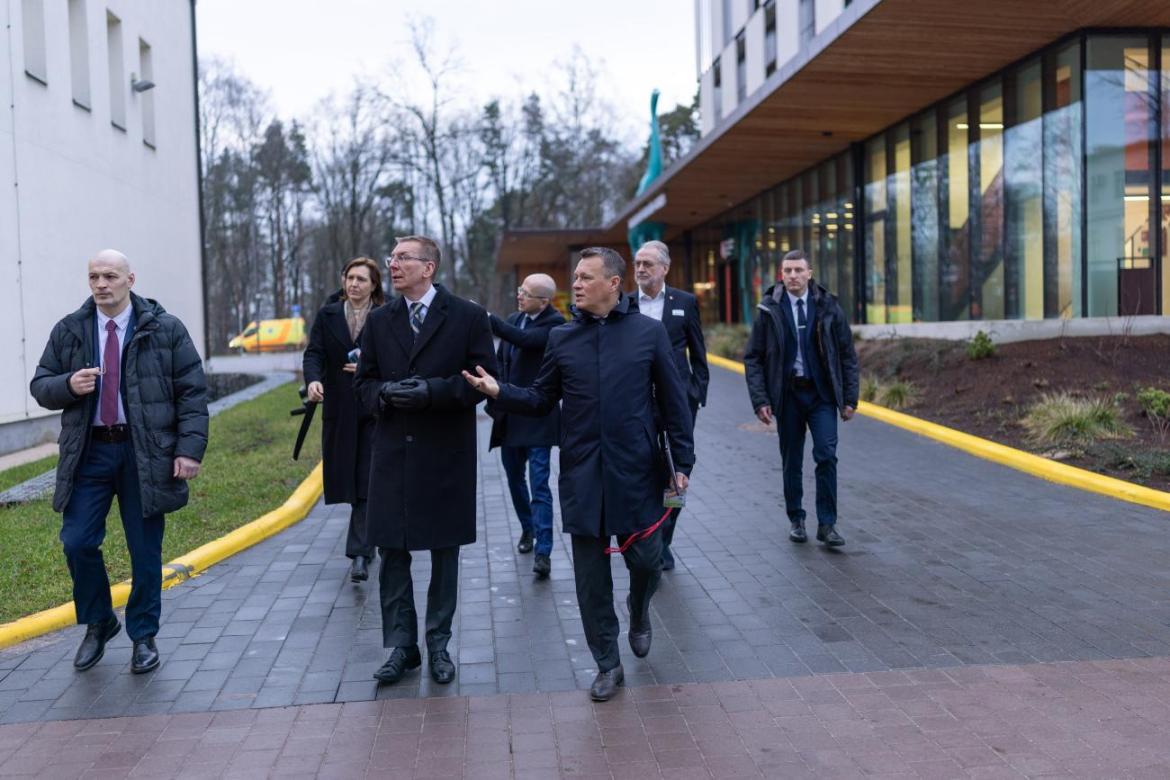
During his visit, the President also toured the future site of the Health Care Development Center (VAAC) within the Children's Hospital premises. The construction of this new facility, funded by philanthropist John Martin Tally's €19.6 million donation, represents the most significant private donation since Latvia's independence restoration. The VAAC will house the PMPC, a modern laboratory, and training and innovation spaces.
A New Era for Precision Medicine in Latvia
Precision medicine is based on a patient-specific approach that considers genetic, clinical, and other personal factors in disease research and treatment. The establishment of the PMPC will create a unique research infrastructure in Latvia, advancing the study of rare and complex pediatric diseases, such as cancer and genetic disorders. By integrating the latest technologies and scientific methods, the center aims to improve treatment outcomes for children with the most challenging medical conditions.
The opening event was attended by Latvia’s Minister of Health Hosams Abu Meri, Minister of Finance Arvils Ašeradens, European Commission representatives, healthcare professionals, patient advocates, researchers, and international guests. The initiative is not only a milestone for Latvian healthcare but also strengthens international collaboration and enhances Latvia’s scientific excellence.
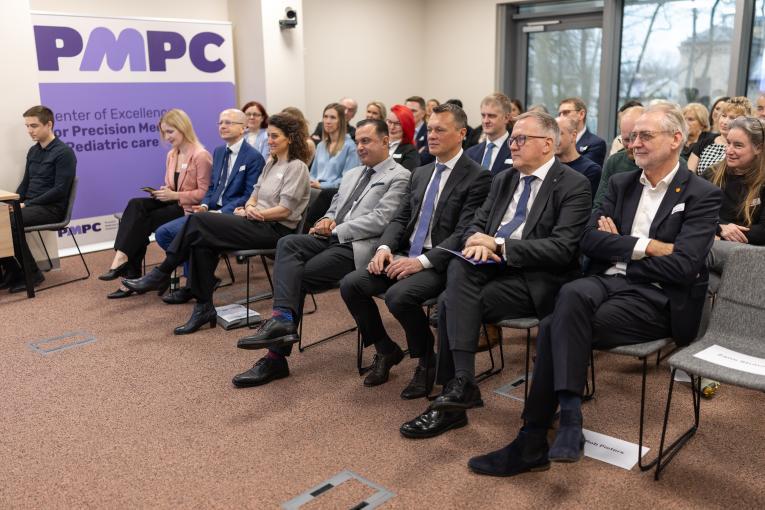
Minister of Health Hosams Abu Meri highlighted precision medicine as the future of healthcare: "Precision medicine is no longer just a vision of the future—it is already an integral part of modern treatment. I am proud of Latvia's commitment to becoming a regional leader in precision medicine. This initiative ensures that our children receive the most advanced and personalized care while also fostering breakthroughs in knowledge, healthcare innovation, and research. Latvia is building a strong ecosystem for the continued development and integration of precision medicine into healthcare, providing patients with individualized treatment and recovery pathways."
Finance Minister Arvils Ašeradens emphasized the significance of the center: "This knowledge hub is crucial, offering hope and progress in treating severely ill children. It is also a prime example of effective collaboration between the state, private sector, and European partners, creating new opportunities for the sector. Moreover, it positions Latvia to undertake world-class projects and strengthen its scientific foundation."
Transforming Pediatric Care Through Research and Innovation
Valts Ābols, Chairman of the Board of the Children's Hospital, underscored the center’s importance: "This center is a unique example of how scientific advancements and modern technologies can directly impact patient treatment. I am confident that the PMPC will become an invaluable resource for both our medical professionals and researchers, significantly improving children's quality of life in Latvia and beyond."
Philanthropist and longtime supporter of the Children's Hospital, John Tally, highlighted the importance of investing in children's health: "Children's health is the cornerstone of our society's future. It is a great honor and privilege to support this significant initiative and contribute to the hospital's vision of becoming a leading center of excellence in pediatric healthcare and research in Europe. The creation of the PMPC and the Health Care Development Center is a testament to the vision, dedication, and collaboration of experts and international partners, all working towards improving children's lives. These joint efforts will provide life-saving treatments for children who otherwise would not survive."
International experts, including Rob Pieters, Director of International Collaboration at the Prinses Máxima Centrum, also took part in the event. He stated: "Our mission at the Prinses Máxima Centrum is to cure every child with cancer while ensuring the highest quality of life—both in the Netherlands and worldwide. To achieve this, it is essential to create and share knowledge, fostering close collaboration in research, diagnostics, and treatment. We are truly excited about the PMPC’s potential to advance precision medicine for children with cancer."
Building a Sustainable Future for Pediatric Precision Medicine
On January 1, 2025, the Children's Clinical University Hospital (VSIA "Bērnu klīniskā universitātes slimnīca") launched the Horizon Europe “Teaming for Excellence” project to establish the PMPC. The initiative aims to develop a cutting-edge research center, enhancing Latvia's capacity for innovation and fostering long-term collaboration with Europe’s leading pediatric precision medicine institution—the Prinses Máxima Centrum in the Netherlands.
_______________
"Funded by the European Union. However, the expressed views and opinions are solely those of the authors and do not necessarily reflect those of the European Union or the European Research Executive Agency. Neither the European Union nor the granting authority can be held responsible for them."
